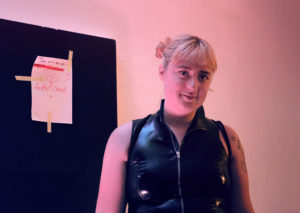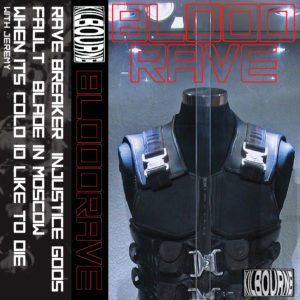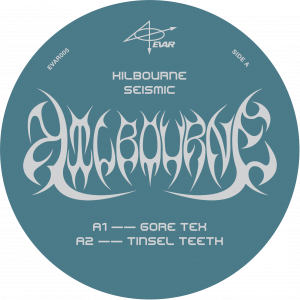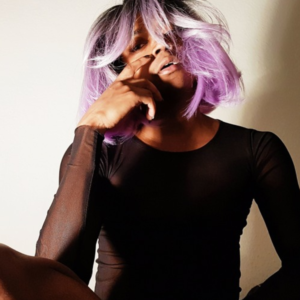At the crossroads of club music, horror and hardcore, Kilbourne’s music is staunchly traumatic. Pushing a politically-informed appreciation of dance music and its contexts, the New York artist’s DJ sets tie together the threads of hard dance, bubbling, trance music and the cinematic – not to mention her involvement in grindcore bands like Cicada – while always embracing their volatility, something that laps over to her own personal experiences.

Kilbourne plays at the upcoming Progress Bar party on February 23 at Paradiso Noord in Amsterdam, as part of Sonic Acts Academy 2018, alongside artists including Violence, Swan Meat and DJ Haram. With a programme that extends across two nights, the first on Friday invites the audience to tread into the concept of noise as a means to challenge preconceptions of club space, asking: “is there a way for artists to resist or recognise alienation through their practice?”
A prime example of Kilbourne’s volatile production style is her upcoming release BloodRave. The release is a rescore of Blade – a movie with a special reverence in dance music; “the opening ‘Blood Rave’ is one of the most iconic club scenes I can think of,” says Kilbourne, “and having a few months to write two hours of new material felt like a cuckoo challenge. Blade is really visionary in how it blends martial arts, vampire, hacker, and rave movies, plus it did leather trench coats a whole year ahead of The Matrix!”
Read the Q & A below and listen to a premiere of the rescore’s opening track, ‘Rave Breaker’.
**Your music has journeyed through various styles of club music – from Jersey and Philly club, to hardcore and terror. Do you find a common thread in each of these forms?

Kilbourne: I will always love music that is aggressive or pushes you to the limit, especially these genres that are built around distortion. Philly club has very clear links to hardcore (artists like Get Em, SirPHresh, DJ Sketch, and others have released tracks and albums that explicitly reference the harder styles) and, similar to terror within the framework of hardcore, Philly club pushes DJs, audiences, and dancers to move faster and step outside ‘traditional’ dance music tempos.
**I heard that the most relevant and pervasive thing in your life is mainstream pop culture – is this still the case? If so, what is it about it that you connect with and how do you translate this in your own musical output?
K: Hmm, I don’t know! Recently the radio has felt a little flat to me but maybe I just need to wait for the spring thaw. Pop music is like a factory, it is streamlined, persistent, and pervasive, which can be enthralling to watch. I love trying to understand and warp these formulas in my own music.
**Playing in grindcore bands as well, do you find value in occasionally shifting away from club music?

K: Definitely! I’m pretty shy about my ‘singing’ voice but I love doing vocals in grind, punk, etcetera. and playing guitar. Also, it teaches you to use your body in unexpected ways, like it kind of sucks that a six-hour session of computer music could be just you moving your mouse and typing keyboard shortcuts. Playing the actual music in real-time, standing up, using your voice, performing live sets, these are often sources of humanity missing in computer-based electronic music and DJing.
**Your music feels especially brutal and relentless, what’s the significance of these qualities to you?
K: I think it’s a way of reflecting and redirecting experiences that feel brutal or relentless. People project a lot of their insecurities around gender and masculinity onto trans women, often in violent and dehumanizing ways. Sometimes doing music that is ‘hard’ feels like a way to accept that reality and come out of it stronger.**
Kilbourne will be performing Progress Bar at Amsterdam’s Paradiso Noord – Tolhuistuin on February 23, 2018.















